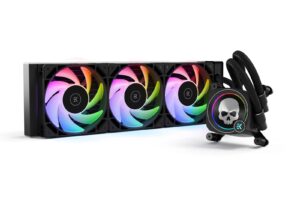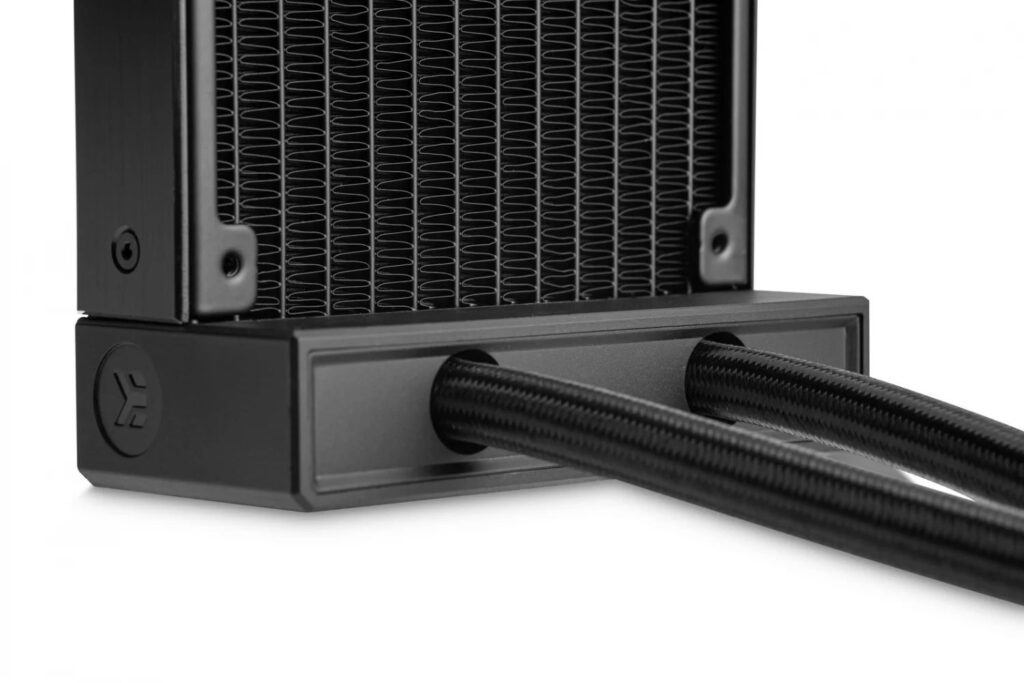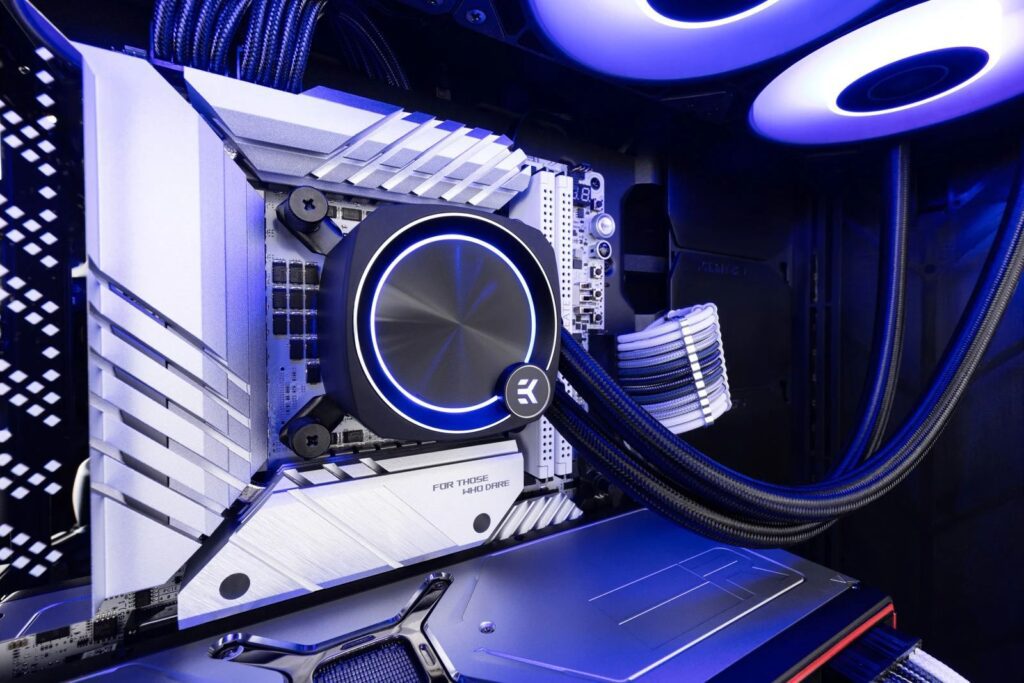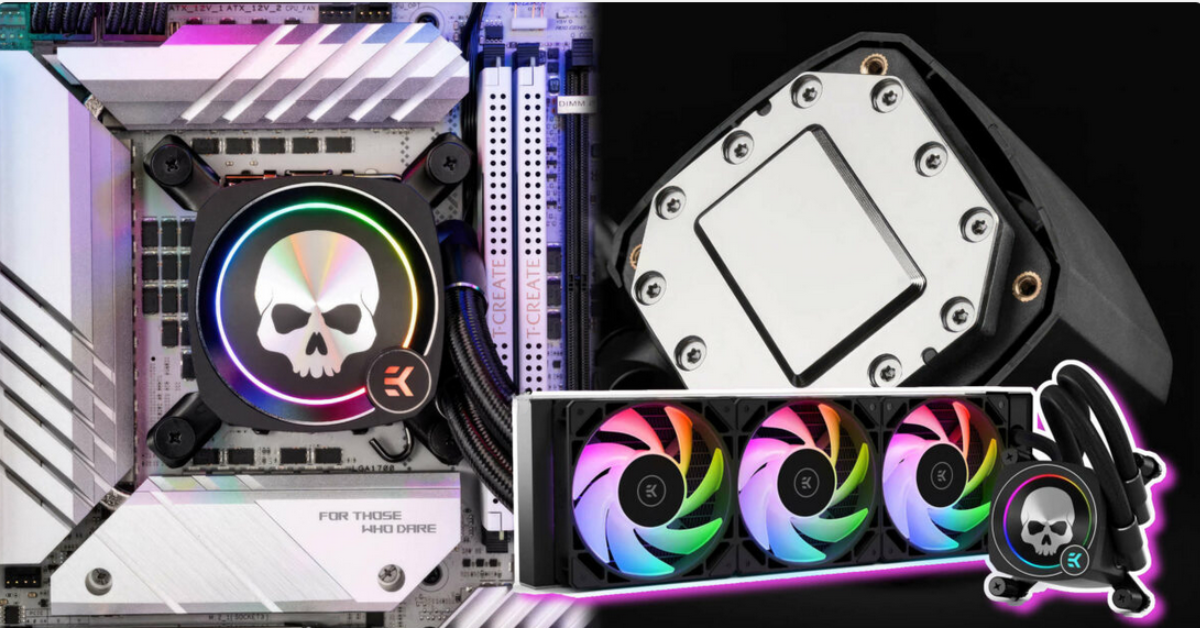EK has unveiled the Nucleus AIO CR360 Direct Die all-in-one cooler designed for Intel CPUs, developed in collaboration with Der8auer. This Slovenian water cooling company is catering to enthusiasts with this unique CPU cooling solution.
The EK-Nucleus AIO CR360 represents a unique CPU cooler tailored specifically for Intel LGA1700 processors that have undergone the process of removing the integrated heatspreader (IHS). While this approach can potentially deliver superior cooling efficiency, it’s important to acknowledge the associated costs and risks that come with delidding.
This cooler has been crafted with enthusiasts in mind, specifically those who have already delidded their CPUs, offering a direct die cooling solution. One of the notable advantages of this design is the seamless integration of liquid cooling, all without the complications and expenses typically linked to traditional water cooling systems. Users can also rest easy knowing that they can remove the cooler at any time without the worry of potential leaks, a significant benefit compared to some enthusiast-grade liquid cooling setups.

The EK-Nucleus AIO CR360 comes equipped with a substantial 360 mm radiator, complemented by three efficient 120 mm EK-Loop Fan FPT 120 D-RGB fans. Notably, this AIO cooler features a pump with a nickel-plated cooling plate, setting it apart from conventional copper-based alternatives. In a collaborative effort with der8auer, EK offers a tailor-made backplate and die-guard, further enhancing the overall package. Moreover, the cooler includes Thermal Grizzly Conductonaut thermal compound as part of its bundled accessories.


The cooler is available at a price point of €202.90, which, while relatively high, falls within the expected range for premium 360 mm AIO coolers. However, it’s crucial to consider that using this cooler entails factoring in the expenses associated with the delidding process. This process can be undertaken individually, requiring the use of a specialized tool (also offered by EK), or by opting for professional services.
Opting for the first approach inevitably voids the CPU’s warranty, while the latter at least provides some assurance, as it may cover the cost of the CPU in case of any mishaps during the delidding procedure.
Source: EK



